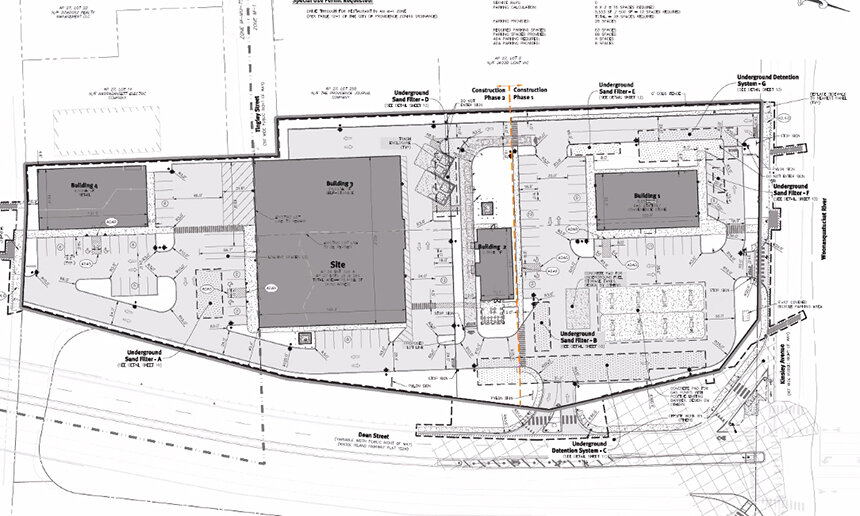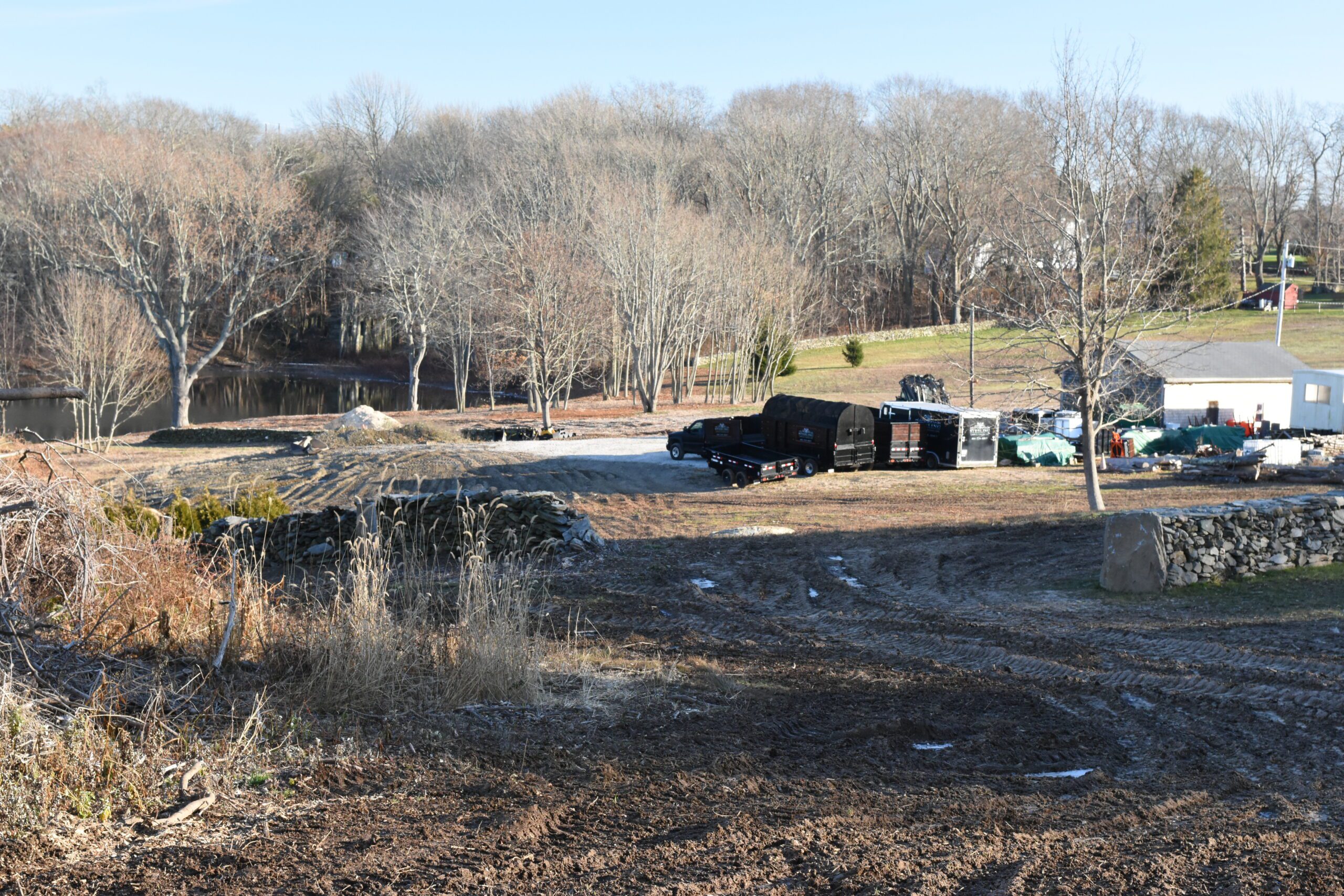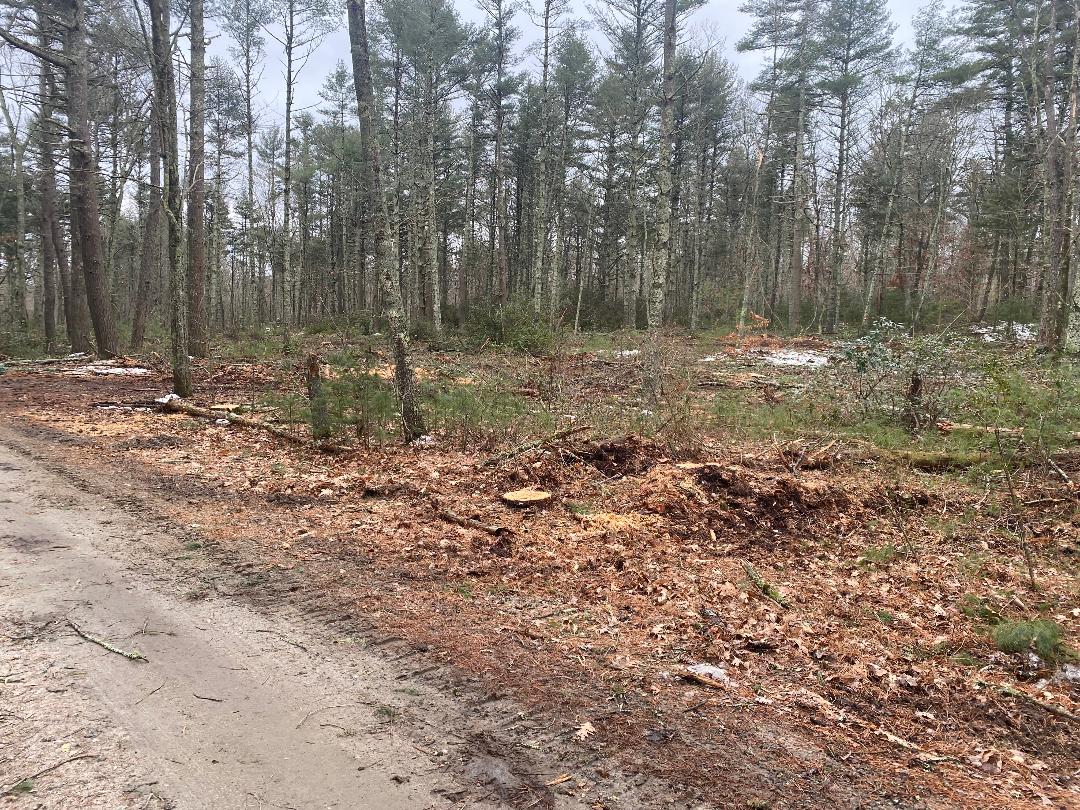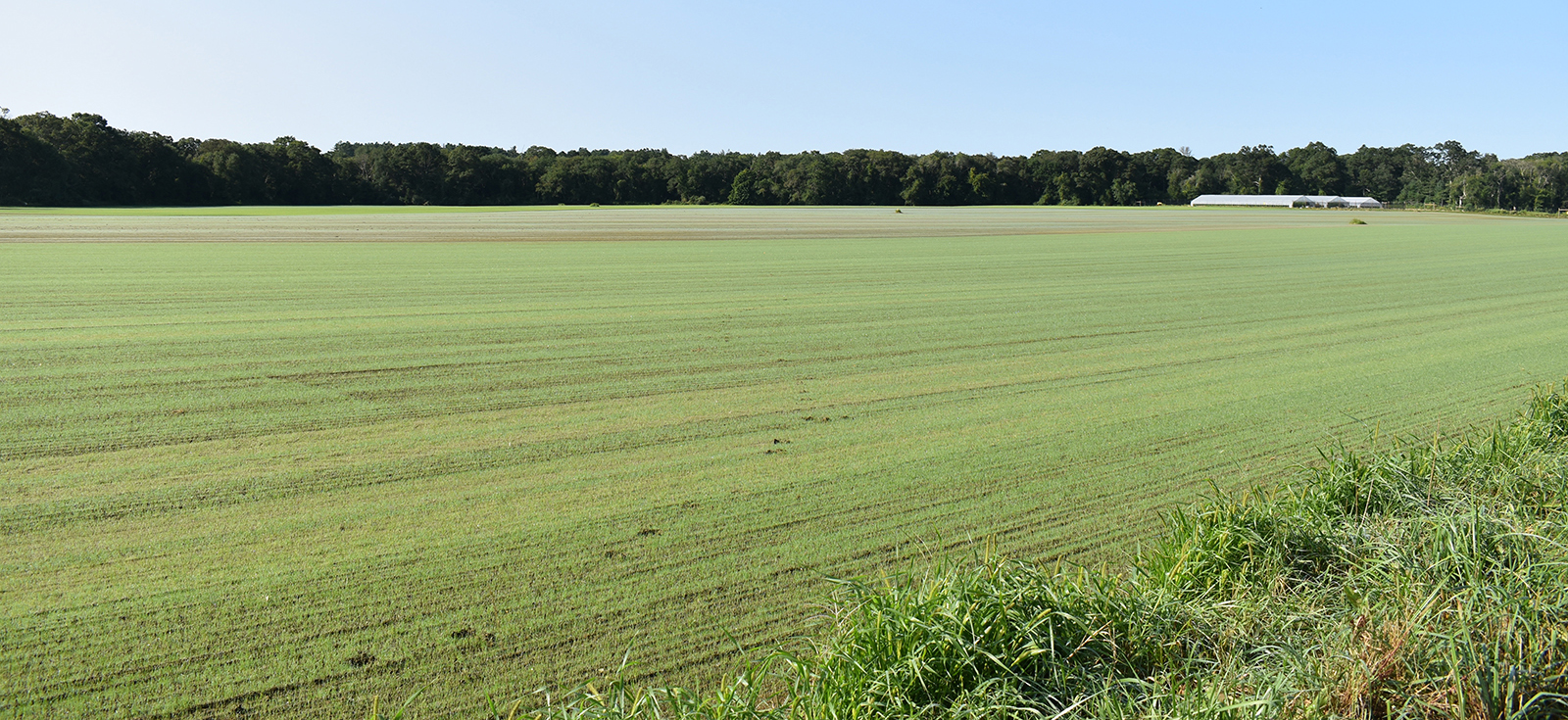Gas Station and Fast-Food Project Threatens Providence Bicycle and Pedestrian Revitalization
September 28, 2020
PROVIDENCE — Old-school, car-focused retail is clashing with new-age transit and a 21st-century economy at a proposed development along the Woonasquatucket River.
A 3.8-acre lot at the corner of Kinsley Avenue and Dean Street is the site of a proposed 5-story self-storage building, a Wendy’s restaurant with drive-thru, and an eight-pump gas station coupled with a large convenience store. The self-storage facility would have 805 units along with 89 parking spaces.
The developer, OGN LLC, is headed by James A. Procaccianti, the president and CEO of Procaccianti Companies. The Cranston-based company financed the Omni Providence Hotel and other residential and commercial structures in the city and around the country.
This project is smack in the middle of a neighborhood revitalization effort to open up river habitat and advance bicycle- and pedestrian-focused infrastructure. It’s all part of a larger citywide initiative to reduce traffic and encourage walking between neighborhoods such as Federal Hill and Smith Hill.
Plans are advancing to connect downtown with the Smith Hill, Valley, and Olneyville neighborhoods. The plans are key pieces of Mayor Jorge Elorza’s Great Streets Initiative and Urban Trail Network and the long-established Woonasquatucket River Greenway Improvement Project.

Residents in favor of those plans spoke against the proposed Kinsley Avenue development at a Sept. 15 meeting of the City Plan Commission (CPC). Several complained of increased litter and the hardships of walking and riding bicycles on traffic-heavy Dean Street. The problems, they predicted, will only get worse with new fast-food, car-friendly development.
Robert Azar, deputy director of the city’s Department of Planning and Development, recommended denying the permit because the project, especially the driver-thru restaurant, will increase traffic and threaten the expansion of bicycle and pedestrian use.
The project conflicts with plans to change the section of Kinsley Avenue to a one-way street and make room for a two-way bike lane, as proposed by city redevelopment plans.
Azar criticized the project’s traffic study for omitting impacts on bicyclers and pedestrians and excluding traffic from a popular weekly farmers market at the new headquarters of the Farm Fresh Rhode Island food hub. Azar and other critics said they oppose a request to widen a curb cut because it makes it harder for pedestrians to navigate the sidewalk.
“The project will have significant negative impacts on traffic, particularly pedestrian and bicycle traffic in which the city has invested heavily,” Azar said.
The Woonasquatucket River Watershed Council noted that the project runs counter to the city’s Climate Justice Plan, which calls for a 20 percent reduction in vehicle miles traveled by 2050. The city also aims to achieve carbon neutrality by 2050, in part by greater pedestrian and bicycle travel.
“A development that is built primarily for car access at the intersection of these two corridors flies in the face of those goals,” Alicia Lehrer, executive director of the Woonasquatucket River Watershed Council, wrote in a letter to the CPC.
The proposed development is also opposed by the Providence Preservation Society and the Providence Streets Coalition.
“Every new gas station is a small, little oil pipeline,” said Liza Burkin, organizer for Providence Streets Coalition. “We have to start thinking about car infrastructure and fossil-fuel infrastructure.”
Greg Gerritt, executive director of the Friends of the Moshassuck environmental group, said the low-lying area is vulnerable to sea-level rise, posing a risk to the gas station’s underground storage tanks.
Anthony Marcello, business development manager for The Foundry Associates, the real-estate company that owns 13 office and residential buildings along the Woonasquatucket River, said he supports opening green space to improve local food production and cultural growth in the area.
“Having another fast-food place and gas station increasing traffic doesn’t really align with that vision,” Marcello said.
CPC chair Christine West explained how the project conflicts with a revitalization of the neighborhood.
“We’ve been focused on coming back from an era where not much thought was given to river ecology and the health of the watershed,” West said. “We are now in an era where pedestrian orientation (and) we’re starting to really put the pieces together.”
She noted that most communities are highly car-focused because they’re not built to accommodate pedestrians.
“We’re not going to get away from auto-dependency until we create an atmosphere where people feel safe and comfortable leaving their cars,” West said.
No one spoke in favor of the project, although CPC member Harrison Bilodeau noted that OGN has made significant progress with its plan already, such as scrapping plans for a car wash. Traffic, he said, isn’t likely to decrease significantly as drivers simply switch from gas to electric-powered vehicles in the future.
The project has already received a pollutant discharge elimination system permit from the Rhode Island Department of Environmental Management and a physical alteration permit from the Department of Transportation. An assent is needed from the Coastal Resources Management Council.
Instead of denying the project, the CPC agreed to give OGN time to answer criticisms of the proposal, and continued the application hearing until Nov. 17.




sounds like its also going to be a really ugly project too. Providence needs to sell being a beautiful and walkable/bikable city as much as possible, especially along river corridors. A lot of new suburbs would have a hard time matching that. I also appreciate the observation that electric cars are no help for this situation, they have lower carbon emissions but they are still cars
This project should not be approved, it is detrimental to the planned improvements for this area.